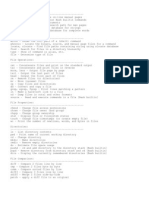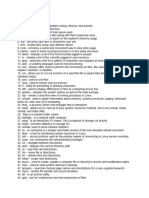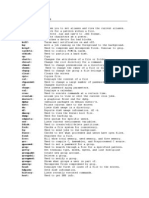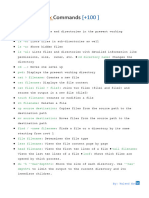0% found this document useful (0 votes)
11 views1 pageCommands
The document lists 50 essential Linux commands that every regular user should know, including commands for file management, system monitoring, and user administration. Each command is briefly described, highlighting its primary function, such as 'ls' for listing directory contents and 'sudo' for executing administrative tasks. This serves as a quick reference guide for users to enhance their command-line proficiency in Linux.
Uploaded by
purifiedsoulytCopyright
© © All Rights Reserved
We take content rights seriously. If you suspect this is your content, claim it here.
Available Formats
Download as PDF, TXT or read online on Scribd
0% found this document useful (0 votes)
11 views1 pageCommands
The document lists 50 essential Linux commands that every regular user should know, including commands for file management, system monitoring, and user administration. Each command is briefly described, highlighting its primary function, such as 'ls' for listing directory contents and 'sudo' for executing administrative tasks. This serves as a quick reference guide for users to enhance their command-line proficiency in Linux.
Uploaded by
purifiedsoulytCopyright
© © All Rights Reserved
We take content rights seriously. If you suspect this is your content, claim it here.
Available Formats
Download as PDF, TXT or read online on Scribd
/ 1




















































